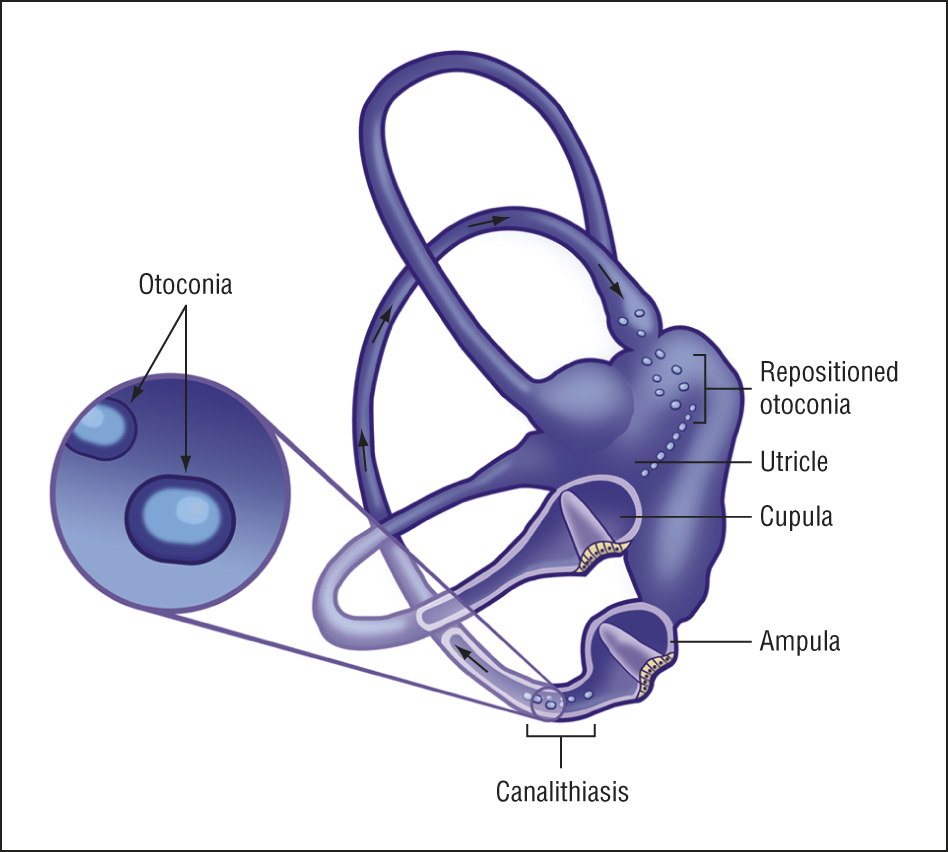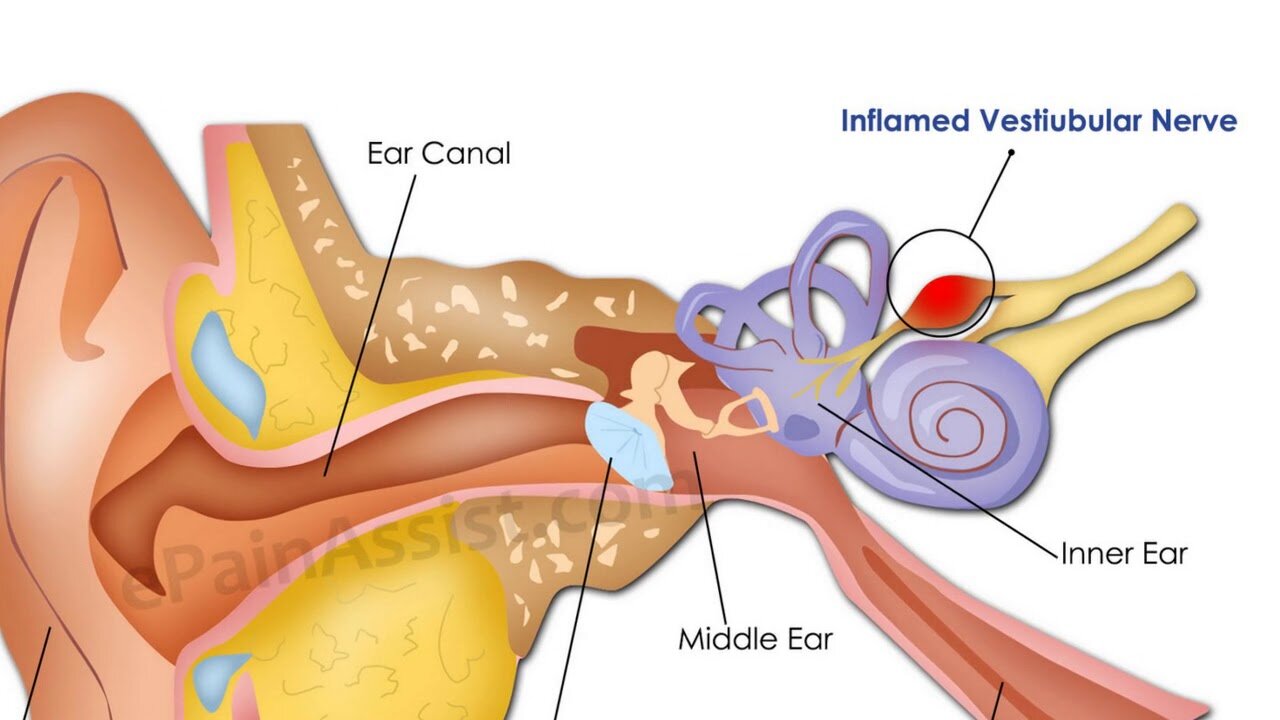Common inner ear causes of vertigo
Vertigo is a hallucination of movement. Frequently it is caused by inner ear problems, although sometimes may be due to other causes (eg migraine). Click here for a really useful website summarising many of the common (and rarer) causes of balance problems, dizziness and vertigo.
BPPV (Benign Paroxysmal Positional Vertigo)
This is one of the commonest causes of vertigo, and causes short spinning attacks after changes in head position, typically looking up or rolling over in bed. It may come on after a bang on the head, whiplash injury, upper respiratory tract infection, or just for no apparent reason.
It is caused by loose particles (otoconia) floating free in the inner ear. Medicines do not work for this, but particle repositioning manoeuvres, such as the Epley manoeuvre or Brandt Daroff exercises are often effective.
Very rarely, scans or surgery may be required, but this is unusual.
Labyrinthitis/Vestibular Neuritis
This is caused by infection or inflammation of the inner ear or or balance nerve, and typically causes spinning dizziness that goes on for several days or weeks, after which the balance slowly returns to normal. This dizziness can be so severe that the patient is bed bound and/or vomiting.
In the first instance, vesitibular sedative medicines such as prochlorperazine (Stemetil/Buccastem) are helpful for symptom control, but these should be stopped as soon as symptoms allow (and certainly after a week or two) to allow the brain to adjust and compensate. Prolonged use of these medicines can prevent proper recovery in the longer term.
Sometimes a scan is required.
Meniere’s disease
This is thought to be caused by changes in fluid pressures in the inner ear. An attack usually last for 30 min to a few hours and is often associated with a pressure/fullness sensation in one ear, worsening tinnitus and a drop in the hearing. These symptoms tend to resolve after the attack has settled. There is a lot of crossover between symptoms of Meniere’s disease and a type of migraine that affects the balance system (vestibular migraine)
Treatment of Meniere’s disease involves avoidance of triggers (salt & caffeine are common) and medicines (eg Betahistine, Bendroflumethazide). Sufferers often notice that their attacks increase in frequency when they are stressed, tired or under the weather.
Sometimes a scan is required.
Rarely, these measures do not control the symptoms and more invasive treatments might be be required (eg intratympanic injection, surgery).


